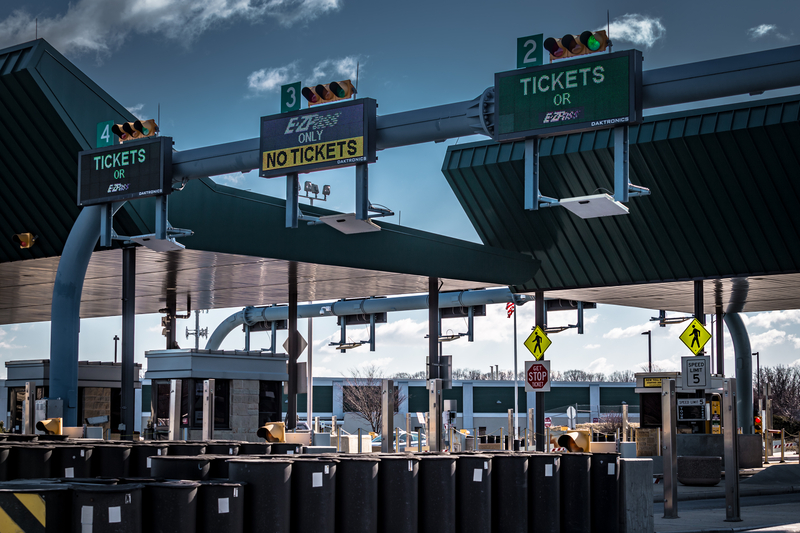
When Tim Stewart, executive director of Colorado’s E-470 Public Highway Authority, settled on ‘trust and accountability’ as the themes for his year as
Stewart was looking for language that would help deliver the global tolling industry’s message of service excellence to customers and stakeholders, while motivating the industry itself to ever-greater heights of achievement.
“We build trust by what we do, we hold ourselves accountable for what we promise to do, and we invite others to hold us accountable as well,” Stewart said in January. “That’s the bedrock of what we do and who we are as an industry. We deliver on our promises.”
As his year as IBTTA president unfolds, he sees the theme playing out in everything member agencies do, at the point where the rubber literally hits the road.
“It’s about continuing to provide that safe, reliable choice for customers, for day trips and trips to key engagements and destinations, for getting to work or to the airport on time,” he says. “We have to continually deliver at or above a lot of our contemporaries in the region,” since users pay directly for the level of service they need and expect.
Beyond expectation
“We have the funding mechanisms to ensure we can continue to provide that high-class, high-quality infrastructure,” he adds. “At the end of the day, it should be great value to our customers, providing them with a time savings, a reliable trip, a convenient trip, to a large extent a stress-free trip, and above all else, to get them there safely.”
To continually achieve beyond expectation, Stewart says tolling agencies must never be satisfied with status quo service delivery. Over the years, that basic principle has meant introducing all-electronic tolling systems that were “to some extent a leap of faith that paid dividends for the operator, but more importantly, for the customers.” Today, IBTTA member organisations are partnering with private sector partners to refine the technology for urban express lanes, experiment with vehicle miles travelled (VMT) payment systems and open a pathway for the introduction of connected and autonomous vehicles.
And if imitation is the sincerest form of flattery, tolling agencies have good reason to declare themselves flattered: often enough,
he says, innovations that are field-tested and proven on tolled facilities are eventually adopted on general purpose roadways.
Stewart points to the extensive automation on Dubai’s Salik Open Road Tolling system, the Ohio Turnpike’s method of leveraging its own capital assets to deliver technology innovation for the wider road network, and IBTTA’s own TollMiner data visualisation tool as examples of the kind of routine breakthroughs the industry is built to deliver.
Data safety
E-470 is a great example of how those improvements give back to local communities. The road “has produced a $38.4 billion increase in real estate value along the corridor since 1986, and the road accounts for 12% of the annual economic activity across the six-county Denver Metropolitan Statistical Area,” he says. “That’s outstanding, but it’s not unusual. It’s just what tolling does for a local or regional economy.”
Another fundamentally important challenge for tolling agencies is to keep customer data safe from unauthorised access. For a couple of years now, IBTTA conference participants have been hearing warnings from cybersecurity professionals that the moment you think you aren’t vulnerable to attack…you’re vulnerable.
IBTTA executive director and CEO Patrick Jones said: “The association’s members take the issue very seriously. They anticipate risks of all kinds and work to prevent serious incidents before they occur. On cybersecurity, our members invest in countermeasures and share best practices with their peers, to make sure everyone in the industry keeps on top of potential threats.”
Ahead of IBTTA’s 2017 Summit in Rome, co-chief meeting organizer Cyndi Ward, of the Metropolitan Washington Airports Authority, expected to see that networking cross international borders. “We’re all very focused on safety, cybersecurity, physical security, and this is an opportunity for those of us from North America to learn a few things from our friends and colleagues in the European Union,” she said.
Everyday excellence
But much as a modern tolling agency relies on state-of-the-art technology - and often enough drives its development - trust and accountability take many different forms. A survey of recent recipients of IBTTA’s Toll Excellence Awards shows how widely Stewart’s themes apply across the industry.
• In 2017, the North Texas Tollway Authority (NTTA) won the Award for Social Responsibility for its support for the Red Thumb Movement, an international effort to stem the deadly tide of texting while driving. Since then, “
“The Red Thumb programme is a lighthearted way to talk about a serious subject,” said executive director Gerry Carrigan. “We’re asking our customers to be accountable to their family members by promising to never text while driving.”
• In May 2013, after two deadly tornadoes cut swathes through the town of Moore, Oklahoma, maintenance crews with the Oklahoma Turnpike Authority (OTA) - then under Stewart’s leadership as executive director - swung into action. “OTA’s efforts made it possible for first responders, relief agencies, and volunteers to respond to the significant needs experienced by local residents and businesses, thereby contributing to a sense of hope and recovery for the communities that were devastated by the storms,” IBTTA said.
“Involvement and trust by communities is very important to the OTA,” says assistant executive director David Machamer. “That’s why OTA had no hesitation in coming to the aid of the community after the tornado in 2013 and clearing the transportation infrastructure. OTA earned trust by holding ourselves accountable to do what was right.”
• The Pennsylvania Turnpike Commission had driver safety in mind when it introduced its 511PAConnect, an emergency communications tool that connects incident response tools with motorists via automated phone or text message. “511PAConnect is a life-saving tool created with existing technology familiar to the public and agency staff,” said CEO Mark Compton. During the first five emergency events, non-emergency 911 calls decreased, customers engaged with the tool and responded positively, and a trapped queue was avoided thanks to a precautionary alert.
• In 2016, the Central Florida Expressway Authority earned recognition for a wrong-way driving pilot programme, designed to prevent one of the most sudden, frightening risks on any highway. Laura Kelley, executive director, said: “We became the first agency to pilot rectangular flashing beacons as a countermeasure to wrong-way driving, using radar or laser detection and roadside cameras to detect oncoming motorists in time to deliver an unmistakable, life-saving message.”
• Also in 2016, Florida’s Turnpike Enterprise won a Toll Excellence Award for the I-4 Connector, a new stretch of road opened in 2014 to “reduce local congestion in the face of surging economic growth and increased truck traffic” from the Port of Tampa. The project turned into an opportunity to build trust and show accountability toward commercial freight operators: “The connector saves some truckers enough time to fit an extra trip into their circuit from Port Tampa Bay to various distribution centres,” the IBTTA blog reported.
To Stewart, all of these efforts and more are part of the tolling industry’s everyday effort to make itself a trusted partner to its customers.
“You’re not going to visit a store if it doesn’t deliver,” he says. “If a transportation corridor breaks down or can’t be relied upon, you’re not going to trust it for your trip or your product delivery. So, we use the resources available to us to ensure that reliability, and we’ve created credibility with some very dedicated, reliable, continuing customers.”











